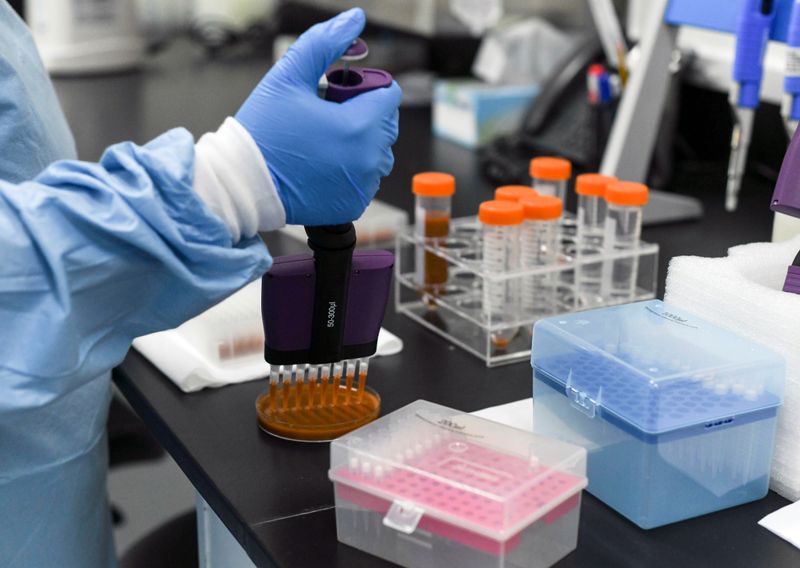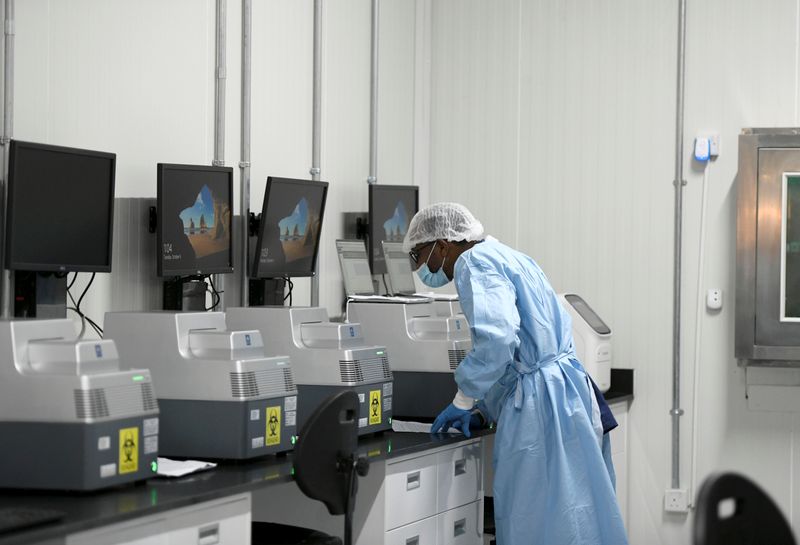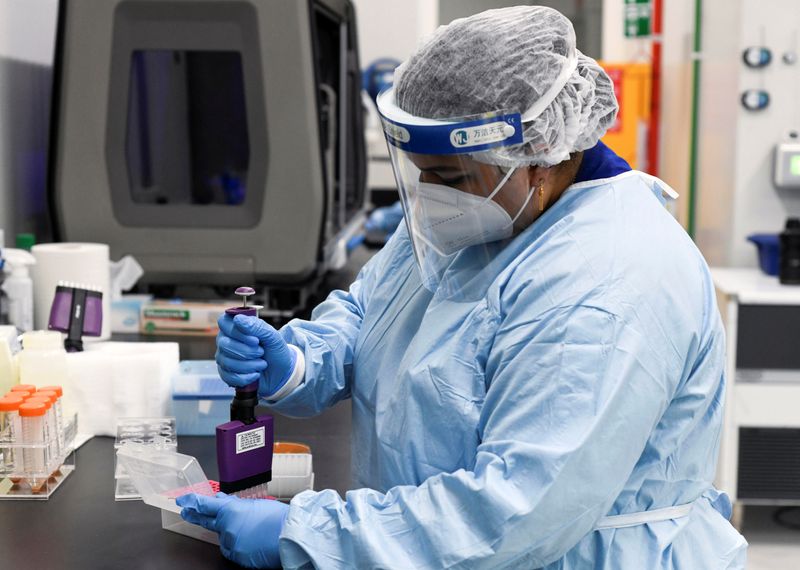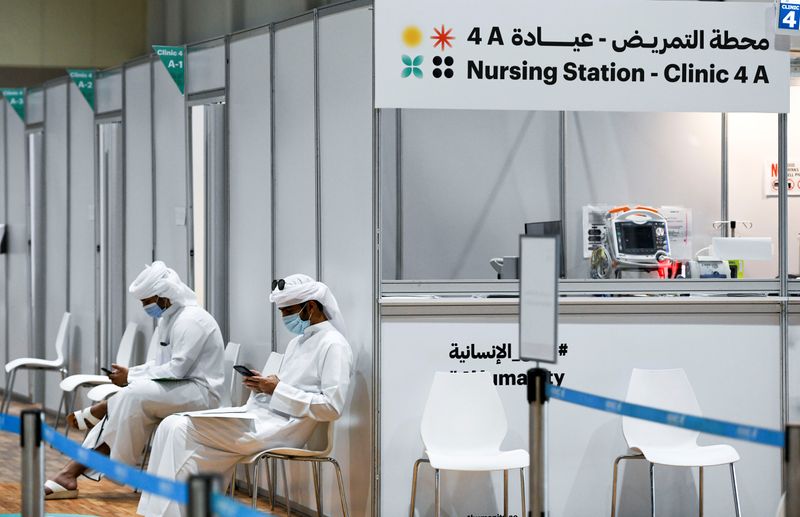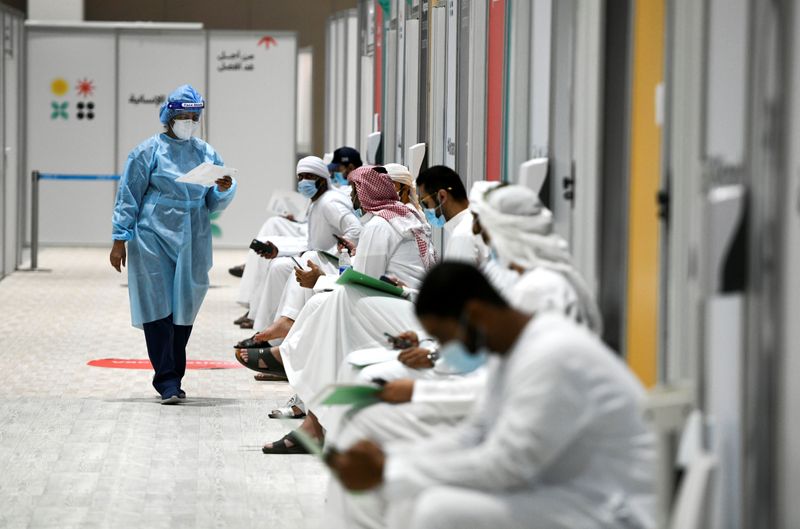ABU DHABI (Reuters) – A United Arab Emirates company is nearing the end of Phase III clinical trials of a Chinese COVID-19 vaccine and hopes to manufacture it next year, a representative said.
The trial, which began in mid-July, is a partnership between Sinopharm’s China National Biotec Group (CNBG) and Abu Dhabi-based artificial intelligence and cloud computing company Group 42 (G42).
The vaccine uses an inactivated virus; a well-known technology which has been used against diseases such as influenza and measles. Two doses are given.
It has been administered to more than 31,000 people in the UAE, Egypt, Bahrain and Jordan, G42 Healthcare CEO Ashish Koshy said.
Results analysis and publication will happen in around two months, Koshy said.
He said G42 has distribution and manufacturing agreements with Sinopharm and hopes to provide the UAE and other regional states with the vaccine, especially those that participated in the trial.
The target is to produce between 75 and 100 million doses next year in the UAE, he said.
“Early results are showing it is safe, there is a general rise in antibodies for all the volunteers,” Koshy said. “In terms of being effective it is on the journey, but only time will tell in terms of the whole picture.”
Emirati volunteer Wo’oud al-Motawaa was vaccinated around two months ago and returned to the facility in the emirate of Abu Dhabi for one of her follow-up checks.
“I work in a hospital so it was something that we want to help with,” she said. “We trust our country.”
G42 has said the UAE population’s diversity was an asset, offering around 200 different nationalities. Koshy said around 125 nationalities had participated so far.
The UAE, whose tally stands at more than 101,000 infections and 435 deaths, has seen the number of daily new coronavirus cases surge over the past two months from 164 on Aug. 3 to a high of 1,231 cases last week.
The UAE has a high per capita rate of COVID-19 tests, having carried out more than 10 million tests in a population of around 9.9 million, the government statistics authority says.
(Reporting by Jacob Greaves; Writing by Lisa Barrington; Editing by Alexandra Hudson)

